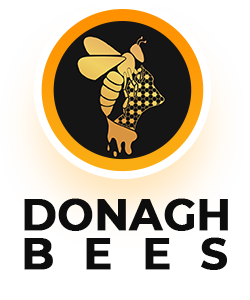health benefits of propolis
TREASURE OF THE BEEHIVE, PROPOLIS IS ONE OF THE PRODUCTS OF THE HIVE, JUST LIKE HONEY, POLLEN OR ROYAL JELLY. RICH IN VITAMINS, MINERALS, TRACE ELEMENTS AND AMINO ACIDS, IT HAS MANY BENEFITS TO CONTRIBUTE TO OUR WELL-BEING. DISCOVER THEM IN THIS ARTICLE!
How is the propolis made?
To obtain propolis, bees collect resin from the buds of certain trees such as poplar, birch or fir trees and then mix it with their salivary secretions. They use it to protect their hive against microbial invasions and to line the walls. A true miracle of nature, propolis is used by bees to protect their colony from putrefaction residues of dead bees in the hive. This ensures perfect sealing during the Winter period. This is its most important role!
Collection of propolis
The collection of propolis is generally carried out after the harvest of honey, with the help of a small, flexible grid, when the colony has reached its maximum production capacity. The product is then removed and placed away from heat to make it brittle. Beekeepers then dissolve it in alcohol to extract the active ingredients and to remove impurities such as the remains of animals and parts of plants. Pure propolis is obtained by browning the mixture in a solid state and by heating it to make the alcohol evaporate.
The quality and quantity of propolis collected depends on the number of bees per hive and the characteristics of the region where they are found. The abundance of plants and buds varies greatly from one region to another. In France, a hive produces an average of 100 to 300g of propolis from each collection.
What is propolis made of?
The composition of propolis varies depending on the trees from which the bees forage. However, even if the rates are different, the product always has the same characteristics: in general, the substance is made up of 50 to 55% resin (phenolic acids, flavonoids, etc.), 30 to 35% beeswax, 5% pollen and the same amount of volatile oils, pollen and various products.
Properties and benefits of propolis
A true treasure of nature, propolis is a hive product just like honey, pollen or even royal jelly. In Egypt, propolis notably served as an antiseptic agent for embalming mummies. Traces of its use are even found by the Greeks, and in England where it was used for its antibacterial properties. Used as a treatment, during changes of season or during the winter period, propolis offers numerous health benefits. It can be consumed in various ways, which makes it a food supplement which is perfectly suited to everyone’s preferences!It helps to stimulate natural defences
Rich in vitamins, trace elements and nutrients, propolis participates in the normal function of the body, notably at the level of natural defences. Combined with a healthy diet and lifestyle, it helps the body to benefit from all nutrients it needs to ensure optimal function. For this reason, it is recommended during periods of fatigue, changes of season and even for support during autumn and winter.
It contributes to promoting respiratory comfort
While propolis offers benefits for maintaining our defences, it can also prove useful for helping to naturally regain respiratory comfort. It has an anti-inflammatory, antitussive and anaesthetic action which make it a useful ally for use in case of congestion or other problems.
For this sue, it can be used in the form of a spray, balm, or even flavoured gums to promote respiratory comfort each day.
It helps to purify the skin and aid oral health
Another benefit of propolis that may be interesting to mention are its purifying and antibacterial properties, useful for contributing to promote oral-dental wellbeing and take care of all skin types. Moisturising, softening, antifungal, antioxidant and healing, propolis is a natural asset with multiple properties for contributing to the beauty of the skin. Incorporated in cosmetic treatments, it helps to purify the skin, to combat the appearance of imperfections and the signs of skin ageing.
The different types of propolis
To take advantage of all the properties of propolis, several forms are currently available on the market in order to adapt to your needs and your preferences.
To help stimulate the natural defences, it can be taken in the form of a mother tincture, capsules or even powder, to be mixed each morning in a drink or a spoonful of honey to act in synergy.
Its presentation in chewable gums, spray or syrup is ideal for respiratory comfort. Finally, to benefit from its skin properties, you can find it added to moisturising creams, purifying masks, and even toothpastes.Dosage of propolis
Propolis is consumed in different ways. For pure chewable propolis, which is recommended in the oral-dental sphere, the recommended daily dose is 1 to 2 pieces for one to two months depending on the results desired. The product is also offered in capsules to allow it to be absorbed more easily. The recommended daily dose is two capsules for one to two months, during meals.
Propolis is also available in the form of a spray. Just two applications two to three times per day for the duration of discomfort is enough. Two to four teaspoons per day are effective. Sweets and gums are for taking up to eight times per day; for the propolis solution, ten to twenty drops are enough.
Contraindications of propolis
Taking propolis is not recommended for people allergic or sensitive to hive products. As with all food supplements, propolis must be taken as an occasional treatment based on needs, which may be repeated several times in the year.

